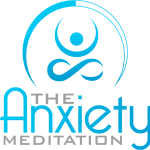Anxiety is an emotional disorder that manifests itself in a feeling of insecurity. Anxiety is characterized by a feeling of apprehension, tension, uneasiness, terror in the face of a danger of indeterminate nature. It is often expressed by the patient as nervousness or worry. Normal anxiety is the experience that each of us has experienced: fear before an examination, anxiety for the health of a parent, anxious reactions in accidents, disasters. Anxiety is thus a useful emotion. It’s a psychological reaction to stress . It is a state that is part of our reactions to adaptation to 9external stimuli by allowing us to mobilize our attention, to raise our vigilance in situations of novelty, choice, crisis or conflict.
Even at this stage, anxiety can be managed but you should pay more attention to it when you begin to notice these abnormal signs;
- It is no longer linked to events in life and it occurs without reason;
- It becomes a permanent state;
- It loses its function of helping the changes of life and it favors more the repetition or the limitation of the behaviors than the possibilities of adaptation of the subject;
- It is a suffering leading to a demand for care;
- It is inserted between attacks of panic where it is associated with neurotic, psychotic or hypochondriac states.
While it is recommended for you to visit a doctor when it becomes extreme, there are so many other natural ways of handling anxiety which I recommend you explore. Apart from the benefits daily exercises have in anxiety management, music therapy and the everyday listening to music quickens the recovery as well. Outside these two, meditation works for me personally and I’m recommending it as well.
How Meditation can help you cure Anxiety
One of the common factors of anxiety is its ability to throw us into a constant state of mental rumination, rehearsing of past events and a panic about the uncertainties of the future. Eventually it plunges us into a bout of negativity. If anxiety paralyzes your existence, it’s time to act. Meditation is a first step towards relief.
You don’t have to be a Tibetan monk to meditate for meditating is a very effective way to relieve anxiety. It helps you calm down in many ways. Here is how meditation can relieve anxiety.
- It creates room for new perspective:
The hustle and bustle of everyday life is enough to drive one insane especially when the desired results are not met. It sometimes prevent one from thinking clearly. Spending quiet time alone with your thoughts is a great way to be relieved and see things more realistically. Thus, meditation is useful for combating anxiety because it offers a moment of calm to clear one’s mind and see the situation responsible for anxiety in a new perspective.
Furthermore, meditation gives you the tools to manage your feelings of anxiety differently and calmly analyze the stressful issues in your life.
- It helps you focus on the present
Mindfulness meditation imbues you with a mental radiation that forces you to focus on what you are feeling right now. This relieves anxiety because anxiety is caused either by negative feelings about something that has happened in the past, or by worrying about something that might happen in the future.
If you focus only on the present, there is no need for anxiety. Mindfulness meditation is a great way to control anxiety in just a few minutes.
- It stops the rapid acceleration of thought
Many people are of the belief that the acceleration of thought triggered by stress can cause anxiety. Meditation slows down thought processes and breaks the cycle of feelings of anxiety.
It removes your attention from the stressor and frees your mind, which can prevent anxiety from invading you. With clarity of thought, not only will you achieve so much results in your tasks but will be happier as well.
- It affects your brain physically
Studies have shown that meditation physically affects the brain – specifically, the areas that control anxiety and calm anxiety. The anterior cingulate cortex is the area that controls thought and emotion, and brain scans have shown that when you practice mindfulness meditation, or breathing-based meditation, this area of the brain is activated.
According to the experts this could mean that people who meditate command or regulate self-referential thoughts.
This means that meditation can actually act on your brain to turn off things that make you feel uncomfortable or nervous.
When next you are stressed and have this uneasy feeling of anxiety, rather than snap with the feelings that your world is crashing down, take a moment and look for a quiet place to meditate. Listening to music as well is a great antidote to manage anxiety.
 The Anxiety Meditation
The Anxiety Meditation 


